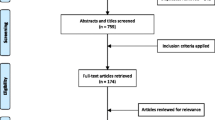Abstract
This paper summarizes an effort to transpose and sustain the evidence-based Early Risers “Skills for Success” conduct problems prevention program in a real world community service system. The Early Risers program had previously been implemented by a local agency within the context of research-based operations. In the current initiative, responsibility for funding and operating the program was transferred from program developers to a local community agency and county service system. There is a description of how the local community partnership adopted the program and real world program evaluation data pertaining to costs and implementation of the program over 2 years (N = 168 children) is presented. It is demonstrated that the local community system provided ongoing funding and that the agency implemented the program with acceptable exposure and participation. Editors’ Strategic Implications: The authors carefully assess multiple elements of fidelity and share important lessons regarding community-based implementation, obstacles, and collaboration. The article should be of interest to anyone considering a replication of the evidence-based Early Risers program and also to a broader audience of researchers and practitioners involved in translational research.

Similar content being viewed by others
References
Addis, M. E. (2002). Increasing evidence-based practice: Promises, obstacles, and future directions. Clinical Psychology: Science and Practice, 9, 367–378.
August, G. J., Bloomquist, M. L., Lee, S. S., Realmuto, G. M., & Hektner, J. M. (2006). Can evidence-based prevention programs be sustained in community systems-of-care? The Early Risers advanced-stage effectiveness trial. Prevention Science, 7, 151–165.
August, G. J., Bloomquist, M. L., Realmuto, G. M., & Hektner, J. M. (2007). The Early Risers “Skills for Success” program: A targeted intervention for preventing conduct problems and substance abuse in aggressive elementary school children. In P. H. Tolan, J. Szapocznick, & S. Sambrano (Eds.), Preventing youth substance abuse: Science-based programs for children and adolescents (pp. 137–158). Washington, DC: American Psychological Association.
August, G. J., Egan, E. A., Hektner, J. M., & Realmuto, G. M. (2003a). Four years of the Early Risers early-age-targeted preventive intervention: Effects on aggressive children’s peer relations. Behavioral Therapy, 34, 453–470.
August, G. J., Hektner, J. M., Eagan, B., Realmuto, G. M., & Bloomquist, M. L. (2002). The Early Risers longitudinal prevention trial: Examination of 3-year outcomes in aggressive children with intent-to-treat and as-intended analysis. Psychology of Addictive Behaviors, 16(4S), S27–S39.
August, G. J., Hektner, J. M., Realmuto, G. M., & Bloomquist, M. L. (2001). An integrated components preventive intervention for aggressive elementary school children: The Early Risers program. Journal of Consulting and Clinical Psychology, 69, 614–626.
August, G. J., Lee, S. S., Bloomquist, M. L., Realmuto, G. M., & Hektner, J. M. (2004). Maintenance effects of an evidence-based prevention innovation for aggressive children living in culturally diverse, urban neighborhoods: The Early Risers effectiveness study. Journal of Emotional and Behavioral Disorders, 12, 194–205.
August, G. J., Lee, S. S., Bloomquist, M. L., Realmuto, G. M., & Hektner, J. M. (2003b). Dissemination of an evidence-based prevention innovation for aggressive children living in culturally diverse, urban neighborhoods: The Early Risers effectiveness study. Prevention Science, 4, 271–286.
Bernat, D., August, G. J., Hektner, J. M., & Bloomquist, M. L. (2007). The Early Risers preventive intervention: Testing for mediational processes in a randomized longitudinal efficacy trial. Journal of Abnormal Child Psychology, 35, 605–617.
Biglan, A., & Taylor, T. K. (2000). Increasing the use of science to improve child-rearing. The Journal of Primary Prevention, 21, 207–227.
Bloomquist, M. L., August, G. J., Lee, S. S., Berquist, B., & Mathy, R. M. (2005). Targeted prevention of antisocial behavior in children: The Early Risers “Skills for Success” program. In R. G. Steele & M. C. Roberts (Eds.), Handbook of mental health services for children, adolescents, and families (pp. 201–214). New York: Kluwer.
Calzada, E. J., Caldwell, M. B., Brotman, L. M., Brown, E. J., Wallace, S. A., McQuaid, J. H., et al. (2005). Training community members to serve as paraprofessionals in an evidence-based, prevention program for parents of preschoolers. Journal of Child and Family Studies, 14, 387–402.
Dane, A. V., & Schneider, B. H. (1998). Program integrity in primary and early secondary prevention: Are implementation effects out of control? Clinical Psychology Review, 18, 23–45.
Flay, B. R., & Collins, L. M. (2005). Historical review of school-based randomized trials for evaluating problem behavior prevention programs. Annals of the American Academy of Political and Social Science, 599, 115–146.
Gomez, J. G., Greenberg, M. T., & Feinberg, M. E. (2005). Sustainability of community coalitions: An evaluation of communities that care. Prevention Science, 6, 199–202.
Hodges, K. (1994). Child and adolescent functional assessment scale. Ypsilanti, MI: Eastern Michigan University, Department of Psychology.
Kellam, S. G., & Langevin, D. J. (2003). A framework for understanding “evidence” in prevention research and programs. Prevention Science, 4, 137–153.
Mrazek, P. J., & Haggerty, R. J. (Eds.). (1994). Reducing risks for mental disorders: Frontiers for preventive research. Washington, DC: National Academy Press.
O’Brien, R. (2005). Translating a research intervention into community practice: The nurse family partnership. The Journal of Primary Prevention, 26, 241–257.
Rohrbach, L. A., Grana, R., Sussman, S., & Valente, T. W. (2006). Transporting prevention interventions from research to real-world settings. Evaluation & the Health Professions, 29, 302–333.
Werthamer-Larsson, L., Kellam, S. G., & Wheeler, L. (1991). Effects of first grade classroom environment on shy behavior, aggressive behavior, and concentration problems. American Journal of Community Psychology, 19, 585–602.
Author information
Authors and Affiliations
Corresponding author
Rights and permissions
About this article
Cite this article
Bloomquist, M.L., August, G.J., Horowitz, J.L. et al. Moving from Science to Service: Transposing and Sustaining the Early Risers Prevention Program in a Community Service System. J Primary Prevent 29, 307–321 (2008). https://doi.org/10.1007/s10935-008-0142-z
Published:
Issue Date:
DOI: https://doi.org/10.1007/s10935-008-0142-z




